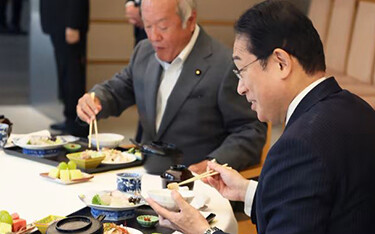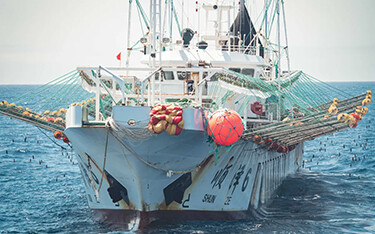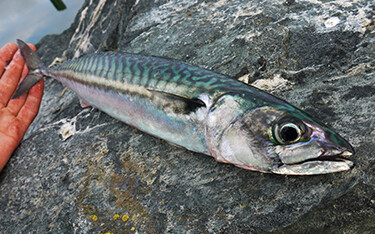Soon after NOAA released a report identifying China as one of several nations it alleges have habitually engaged in illegal, unreported, and unregulated (IUU) fishing, Chinese officials pushed back on such claims by bringing Beijing-based diplomats on a guided tour of fishery facilities in the southeastern province of Fujian.
In combination with the report, NOAA handed China – alongside Mexico and Russia – a negative certification
… Read MoreSingapore-based Karang Foodie, which specializes in upcycling food waste, has acquired feed company INSEACT. The all-equity deal will see 100 percent of INSEACT’s shares transferring to Karang’s control.
Amid rising global demand for alternative feed, as seafood companies seek to lower input costs and secure supply in the face of high fishmeal costs, there are also signs that high-interest rates are impacting the ability of firms to
… Read MoreFaced with local government debt worsened by the Covid-19 pandemic, Chinese municipalities have been searching for sources of income and economic growth, leading the local government Harbin, a city in northeast China, to launch a new railway transport line to foster seafood trade with Russia.
A cold-chain railway connection between the port city of Vladivostok, Russia, and the inland city of Harbin will enable the neighboring nations, which have
… Read MoreJapan’s seafood exports to China, which crashed by nearly 25 percent in July – representing the first decrease in more than two years – will likely continue to plummet after Japan’s government made the controversial decision to release treated wastewater from the damaged Fukushima Daiichi nuclear plant.
In response, on 24 August, China implemented a ban on all Japanese seafood imports after the water release, severing
… Read MoreRising feed prices in China are putting pressure on the supply of key exports like tilapia, as producers have grown wary due to losses incurred from these soaring input prices.
Fishmeal prices in China rose by up to 40 percent in the first half of 2023, according to industry sources.
Landy Chow, who is based in Guangzhou and manages the Chinese offices of trading firm Siam Canadian, said tilapia farmers’ break-even cost of production is
… Read MoreChris Aurand is a Bangkok, Thailand-based open innovation leader at Thai Union Group and has a front-row seat to the innovation occurring Asia’s seafood industry. He will be speaking at the Asia Pacific Agri-Food Innovation Summit in Singapore from 31 October to 2 November and, in advance of that event, spoke to SeafoodSource about what’s emerging from the region’s seafood innovators.
SeafoodSource: There have been a bevy of
… Read MoreOceana, a Washington, D.C., U.S.A.-based environmental nonprofit, has described China’s self-imposed bans on its squid fleet as a PR stunt that does nothing to address overfishing, with analysis from the NGO finding that these annual bans avoid areas where Chinese vessels actually fish.
In 2022, China introduced a voluntary ban on squid fishing lasting from 1 July to 30 September in the high seas of the North Indian Ocean outside the
… Read MoreIrish fisheries representatives have claimed that Norway inflated its mackerel stock data to trade quota with the U.K. in a deal that, in addition to engaging in IUU practices, doesn’t include E.U. coastal member states like Ireland.
Norway State Secretary Vidar Ulriksen, a vocal opponent of Irish criticism, retorted that the allegations are “completely unsubstantiated and incorrect,” telling SeafoodSource that the press
… Read MoreThe continually worsening Chinese economy, amid increased scrutiny toward companies listed on stock exchanges, has prompted the cancelation of an initial public offering (IPO) listing from Ocean Family, one of the country’s most ambitious tuna and squid fishing and processing firms.
Zhejiang-based Ocean Family, also known by its Mandarin name Da Yang Shi Jia, recently canceled its listing on the Shanghai Stock Exchange after the
… Read MoreFollowing a recent ban on all Japanese seafood imports into China due to the controversial release of treated cooling water into the Pacific Ocean from the Fukushima Daiichi nuclear power plant, international seafood suppliers and domestic producers alike are lining up to fill the gap in supply.
China, including Hong Kong, bought 42 percent of Japan’s seafood exports prior to the ban, and the relationship was mutual, as Japan has
… Read More














